In early December 2015, Lulu Miller and Alix Spiegel–alumni of This American Life and Radiolab, respectively–promoted their new podcast, Invisibilia, on an episode of NPR’s Ask Me Another. When Ask Me Another host Ophira Eisenberg asked the two creators to explain Invisibilia, Lulu Miller replied:
So sometimes, we privately call it, like, secret self-help [. . .] We try to look at stories, and look at the science behind them, and document it–and then right at the end, we add a little–we give a tool. We try to, in addition to documenting, maybe give people stuff that might help them live their lives.
Since its first episode, Invisibilia has prided itself on having a foremost tenet of empathy. The podcast aims to use real human stories to tell the reader a little more about not just the human condition, but themselves. Invisibilia tacitly implies that we can always see a facet of ourselves in each other if we just share our stories and listen.
But this thesis statement was challenged in Invisibilia’s most recent episode, “The End of Empathy.” The episode didn’t challenge whether or not we could see ourselves in each other; instead, it challenged whether or not we should.
The episode left me feeling uncomfortable and unsettled in ways that took me several days to unpack. I couldn’t shake the feeling that the secret self-help Invisibilia had tried to impart was that empathy might be more dangerous than helpful. More than ever, though, it felt like another moral was conveyed in the execution: the story is always more important than its ramifications.
An embed of RadioPublic’s player for Invisibilia‘s “The End of Empathy,” which you can also find here.
As a note, this episode of Invisibilia discusses topics like abuse, suicide, violence, and incel ideology and violence. Other sources used here discuss transphobia, gender dysphoria, and both digital and physical acts of self-harm.
![]()
“The End of Empathy” begins with a sort of bait-and-switch segment. The listener hears a conversation between Invisibilia co-host Hanna Rosin and the crux of the episode, a man who uses the pseudonym Jack Peterson. Peterson explains trying to win back his girlfriend, only to be strangled by her. It sounds like the introduction to a typical Invisibilia episode before journalist Lina Misitzis cuts in. Misitzis explains that she didn’t record the audio, but has been asked to create a story for Invisibilia using the audio as part of the job interview process.
Misitzis doesn’t sound enthusiastic about the audio, and taking a third step back, Invisibilia host Alix Spiegel–no longer joined in production by Lulu Miller–explains that they wanted to display Jack Peterson with their hallmark empathy. Peterson is what Rosin calls a “reformed incel,” someone who had been of the mindset that women are to blame for men’s “right” to sex. Rosin explains Misitzis’s frustration with the task at hand, saying, “In the post-#MeToo, vigilant, polarized Trump-era world, showing empathy for your so-called enemies is practically taboo.”
From this point, the episode tells two different stories:
- The story Rosin wanted to tell, showing Peterson in an empathic light, and
- The story Misitzis wanted to tell, from the perspective of his girlfriend–and many other women who have had to deal with men like Peterson.
Immediately, I understood where Misitzis is coming from. As both an abuse survivor and just a woman who exists in the world, I was all too familiar with the tactics Peterson used against his girlfriend: showing up unexpectedly, blaming her for his loneliness, using his mental health and suicidal ideation to control her. Since before incels had a name, I’ve known men who share incel philosophies, going as far as thinking women should choose forced sex with men or death–things that have been said directly to me with such an air of casual confidence and conviction I still get chills and feel the hair on the back of my neck stand up when I think of them.
But I also understood where Rosin is coming from. Empathy is what reminds us that other people are people. In the words of Dr. Fritz Breithaupt (a scholar we meet in the second half of the episode), “I think that empathy still, overall, is the key to all humanity. Without empathy, we would be just alone.” Encouraging empathy can decrease Schadenfreude, reduce racial bias, and decrease homophobia. In the words of Kayla Chadwick via The Huffington Post, “I don’t know how to explain to someone why they should care about other people.” In instances where empathy leads to greater human rights, empathetic connections had to be forged and fostered between groups that saw each other as the enemy.
The first half of the episode gives the story Rosin wanted to tell. In this half, Peterson is given the benefit of the doubt. He talks about how after being broken up with, he planned a Hail Mary romantic gesture. He got on a plane to see her in person–the relationship had been only online interactions until this point–to try to win her back. In her car, he tries to talk to her, to see how they can fix the relationship, but instead, she starts strangling him. When the cops arrive at the scene, Peterson still doesn’t want to harm his girlfriend, so he distracts them by saying he’s suicidal. He spends a few days in a mental hospital. When he goes back home, he finds a forum for incels and is compelled by what they’re saying. He craves the abuse they give him when he tells his story. After another incel murders seven people, Peterson advocates for the incel philosophy on media outlets, but is surprised to find that the women who work at the outlets are kind to him. Eventually, Peterson leaves the message boards and stops siding with incels.

The second half of the episode gives the story that Misitzis wanted to tell. In this half, Peterson isn’t a scorned romantic who hits rock bottom and then pulls himself back up. He’s an abusive, controlling boyfriend who shows up on his ex-girlfriend’s doorstep out of nowhere, violating her privacy, to manipulate her to stay with him. Misitzis explains that Peterson’s girlfriend had reason to believe Peterson might hurt her: in the past, he’d retaliated against her by sharing her nude photos to her family, her friends, and her professors. Peterson’s turn away from being an incel has nothing to do with any reflection or remorse for what he’d done to his girlfriend; in fact, he doesn’t seem to think he was in the wrong at all. When the two call Peterson to settle their debate, Peterson actually admits this shouldn’t be his redemption story. He tells them he only turned away from incel culture because it was a bad look for him, and that bad look was making his life harder.
This section of the episode also a looks into empathy through a historical lens. If humans had more empathy in the past, one might argue, massive atrocities like the Holocaust may not have happened. Dr. Fritz Breithaupt, a Germanic Studies professor at Indiana University, disagrees. Dr. Breithaupt says that too much empathy is to blame for atrocities and political schisms, as long as that empathy is directed at people like us. Essentially, Dr. Breithaupt is saying that empathy for our own leads to confirmation bias and a mob mentality that makes the Other more anathemic. Rosin continues to summarize research suggesting that, actually, current generations have less empathy than any prior generations. Misitzis is of a younger generation than Rosin, and Rosin asks what the downside of extending empathy to Peterson would be, their conversations goes as follows:
MISITZIS: The women who I believe he has abused become the villains. And if you don’t get it right and you’re inviting your listeners to empathize with someone whose logic is not just so offensive but it’s literally flawed, I just think you’re creating more turmoil.
ROSIN: For society.
MISITZIS: Right. The point of empathy is that it’s bringing us together. And in that instance, I think it further pushes us apart.
ROSIN (narrating): So here’s what I missed. In Lina’s view, there’s a cost to empathy. Empathy is not an infinite resource. And it’s not free because it saps your strength for the fight. So if you boost one side, you’ll make the other side weaker. And that is especially a problem when the side you’re boosting is the side with power.
At the end of the episode, Rosin says her mind was changed, at least in some part, but Misitzi’s wasn’t. I knew none of my opinions on empathy had changed, but I knew my opinions on Invisibilia had. In the episode’s end credits, Rosin says that Misitzis now works at This American Life, not Invisibilia.
![]()
I’ve been watching a lot of video essays lately.
Second only to podcasts, video essays are one of my great media loves. The first time I learned what an “incel” is was actually a video essay: under the channel name ContraPoints, once-was Philosophy PhD candidate Natalie Wynn explains the ethos of incels in her iconic high-production, hedonistically glamorous fashion:
Wynn explains that incels hate themselves just as much, if not more, than they hate women–something Hanna Rosin discusses in the Invisibilia episode as well. Wynn makes fun of incels while also explaining the very really, very harmful dangers incels pose. Men who call themselves incels have murdered women, and causing harm to women is a prominent facet of incel ideology.
But about 17 minutes into her video, Wynn’s tactic changes. “I know I said I wasn’t going to sympathize with the incels, and I know they don’t want my sympathy, and I know it’s bad practice to sympathize with the devil,” she says, “but on some level, I can’t help it.” The semi-ritualistic self-flagellation incels take part in, posting their pictures in forums for the specific purpose of being ripped to shreds in the replies, is virtually the same thing Wynn did shortly after she came out as trans. Wynn would search out threads where people would post her picture on forums, relishing masochistically in the hateful, abusive comments others would leave on her appearance. “That was always painful,” she says, “but there was a kind of pleasure, too. There was a rush.”

Wynn says that searching out these hateful comments is a type of digital self-harm, a recent psychological phenomenon brought on by the advent of social media, tying into what Wynn calls “masochistic epistemology”–the idea that “whatever hurts is true.” Wynn doesn’t sympathize with incels. She doesn’t approve of their thoughts, actions, or philosophies, and she certainly doesn’t think they’re in the right. But she does empathize with them. She understands this self-destructive, self-loathing cycle they’ve fallen into, and she understands that if they don’t break out of it, they’re going to continue causing harm to themselves and others. Wynn ends her video not just giving advice, not just giving resources, but doing both while reminding incels that she thinks they’re irrational and illogical:
So incels, I’m not going to respond to your worldview like it’s an intellectual position worthy of rational debate, because these ideas and arguments–you’re not using them the way rational people use arguments. You’re using them as razor blades to abuse yourselves. And I know, because I’ve done the exact same thing. The incel worldview is catastrophizing. It’s an anxious death spiral. And the solution to that has to be therapeutic, not logical. So what you have to do is get off those forums as fast as possible. I’m going to post a link in the description of this video to instructions on how to block certain websites from your computer–because for me, that’s what it took.
When listening to “The End of Empathy,” I wasn’t just reminded of ContraPoints. I was also reminded of Innuendo Studios’s “Lady Eboshi is Wrong | Lessons Animation Taught Us,” a video essay on the 1997 Hayao Miyazaki film Princess Mononoke. The film follows a cursed prince who must help two warring sides, the forest and the industry that is killing it, find peace by making sure his eyes are “unclouded by hate.”
The video is about Princess Mononoke, but it also isn’t–it’s about empathy. In the film, the protagonist, Prince Ashitaka, has to see, understand, and empathize with both sides of the conflict. On one side of the conflict is San, a human girl living with the forest spirits, whose home and adoptive family are being killed so a nearby village can mine for iron. San is the easy one to empathize with here: her land is being razed, the gods who rule over her people being driven mad with hatred and suffering, the cause of their transition to demonhood pieces of iron ore. Initially less easy to empathize with is the film’s antagonist, Lady Eboshi, who runs the iron mines and wants to continue to destroying the forest. But Prince Ashitaka–and, by proxy, the audience–still learn about her life and struggles. Lady Eboshi gives work to the oppressed, to people who have never been given any shred of respect. She treats them well and keeps them safe. Without her iron, their lives would be so much worse.
Innuendo Studios host Ian Danskin explains that in most animated films, the characters who the audience is supposed to care about the most are the characters who are morally right. Miyazaki movies are different, though, especially Princess Mononoke. Lady Eboshi and San get virtually equivalent screen time, development, and, most importantly, care. “[Miyazaki movies posit that] everybody, right or wrong, no matter what they’ve done, is deserving of empathy,” Danskin narrates. “The whole of Princess Mononoke is a parable against hate.”
But the video isn’t called, “Lady Eboshi Is Just As Right As San.” It’s called “Lady Eboshi Is Wrong.” Over the course of the film, Prince Ashitaka cares deeply about both San and Lady Eboshi. He defends them from each other in fights. He defends their people, too, saving both San’s adoptive family and Lady Eboshi’s workers multiple times. Prince Ashitaka empathizes with both San and Lady Eboshi, but the film doesn’t resolve in convincing the two to be civil to each other. Prince Ashitaka ultimately helps San overthrow Lady Eboshi and save the forest. Prince Ashitaka is seeing with eyes unclouded by hate, both in empathizing with Lady Eboshi and working against her. He cares about Lady Eboshi, but he also understands that Lady Eboshi is wrong. He cares about her, but he doesn’t conflate that care and understanding with approval of her actions. He cares about her, and he stops her.
![]()
When Invisibilia debuted, it immediately became my new favorite podcast. I loved its approach to humanism. I was so happy to hear a podcast that not only asked big questions about how humans worked, but also left the listener with something to use, something to internalize to make their lives a little easier or less chaotic. Invisibilia has one of my favorite podcast episodes ever made. After “The End of Empathy,” though, I find myself looking back on those episodes with cynicism.
Let’s break down the ending concept Invisibilia tries to communicate to the listener. The listener knows that it’s Rosin, not Misitzis, who changed her mind–at least a little. The listener knows that the title of the episode is “The End of Empathy.” The listener knows that a scholar of cognitive science and empathy gives anti-empathy arguments, positioned in an episode titled “The End of Empathy.” The takeaway, here, seems fairly clear: empathy isn’t the way we will find resolution. Instead, empathy brings more chaos, more frustration, more rage. Empathy is a finite resource, and spending it on our enemies (like Peterson) is as dangerous as spending it on those like us (as with Dr. Breithaupt’s analysis). It’s unclear where this episode of Invisibilia wants us to spend our empathy, but there’s little ambiguity about how we shouldn’t spend it.
In the trailer for Season 3 of Invisibilia, Spiegel teases the upcoming episodes by asking, “How is it that two people can look at the exact same thing and see something completely different?” In one way, this episode exemplifies the question: Peterson and his girlfriend see the same situation completely differently. So do Rosin and Misitzis. But in another way, the Invisibilia team and I also seem to be looking at the episode and seeing something completely different. Invisibilia looks at the episode and sees a provocative story asking an intriguing question. I look at the episode and see something that attempts “secret self help” and leaves the listener with the guidance that empathy is more destructive than constructive.
So where does that leave Lady Eboshi? In his video, Danskin says, “Lady Eboshi doesn’t need to be killed. She needs to be saved.” He points out that Lady Eboshi’s destruction of the forest isn’t due to malice; it’s due to indifference. She kills the forest because her people need the iron, and in her eyes, the forest does not matter. Should she not try to extend empathy to the forest and its spirits?
Where does this leave Prince Ashitaka? Is his empathy for Lady Eboshi wrong? Is he doing something harmful by coming to understand her, even though he acts to stop her? What of his empathy for her supporters, the people who benefit from Lady Eboshi’s destruction of the forest?
Where does this leave Natalie Wynn? Does her empathy for incels suggest an acceptance or approval for their thoughts or actions, even when her entire video was made to explain how harmful they are? Is Natalie Wynn the Hanna Rosin of the situation?
Where does this leave Peterson’s girlfriend? We can all agree, I hope, that she is right in the same way that Lady Eboshi is wrong–but others won’t see it that way at all. If the thesis is that empathy is at best overrated, at worst actively harmful, what happens to women like her, or like the other women Misitzis discusses in her analysis of the situation?
And where does this leave Invisibilia, a podcast that claims to be about empathy, about self-help, about understanding ourselves better, about understanding how people can look at the same exact thing and see something completely different?
![]()
Ultimately, “The End of Empathy” suffered from a trend that’s become more and more prevalent in Invisibilia. A person’s story is reported on, but used in the episode as an allegory for a larger sociological question. That question, though, is only analyzed through that specific person’s narrative–and then, by the end of the episode, the listener is supposed to have some semi-unspoken guidance for their own lives, to take into the greater sociological world.
I don’t think empathy is dangerous. I think using a case study to determine how we view a multifaceted philosophical question like the value of empathy is dangerous. And I think that pieces of media that aim to dissect these philosophical questions with as much nuance as possible have some degree of duty to look at their reporting, consider how its standpoint will affect those outside of the story being told, and ask themselves wherein the dangers might lie.
In the trailer for this season, Spiegel says that Invisibilia is “no wrong answers, just the right questions.” It’s a tagline that makes sense in a vacuum, one where it’s understood to refer to a podcast–but it’s not a tagline that necessarily makes sense within Invisibilia. With the concept of “secret self-help” at its roots, the podcast isn’t just about questions. It’s about answers, about “tiny switches you can make in your thoughts, your words, your actions, that can change the world around you.” If the result is a tiny switch in your thoughts and actions, is whether empathy is constructive or destructive the right question? When the context suggests something actionable, hiding behind the question outside of that context isn’t sufficient.
When I listened to the first season of Invisibilia, I wanted everyone to listen to it; I wanted everyone to get this secret self-help, to make these changes in their life. I wanted everyone to ask the right questions, like they did. I wanted to be like Invisibilia and ask those right questions, too.
After “The End of Empathy,” though, what I realize I want is for people to be like Natalie Wynn of ContraPoints. I want them to look at those who terrify them, those who hold such harmful beliefs and sometimes act on them, and ask why. I want them to understand that investigating their enemy is a facet of making actual change.
What I want is for people to be like Ian Danskin of Innuendo Studios. I want them to dig deep into the media they consume and think about how the story’s lessons apply to the world as a whole, in a practical way. I want them to understand that empathy is not synonymous with approval.
And what I want is for people to be like Invisibilia’s marketing. I want people to ask the right questions. I want people to analyze human stories and apply them to their perceptions of the human condition. I want them to use their findings to make tiny switches in their thoughts, words, and actions, that can change the world around them.
And what I want is for Invisibilia to live up to that marketing, too.



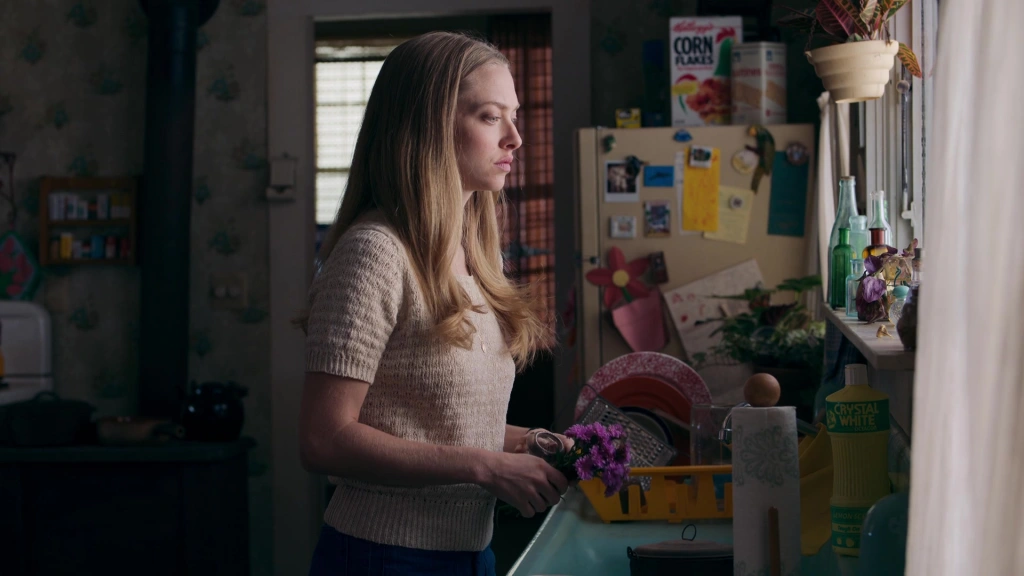
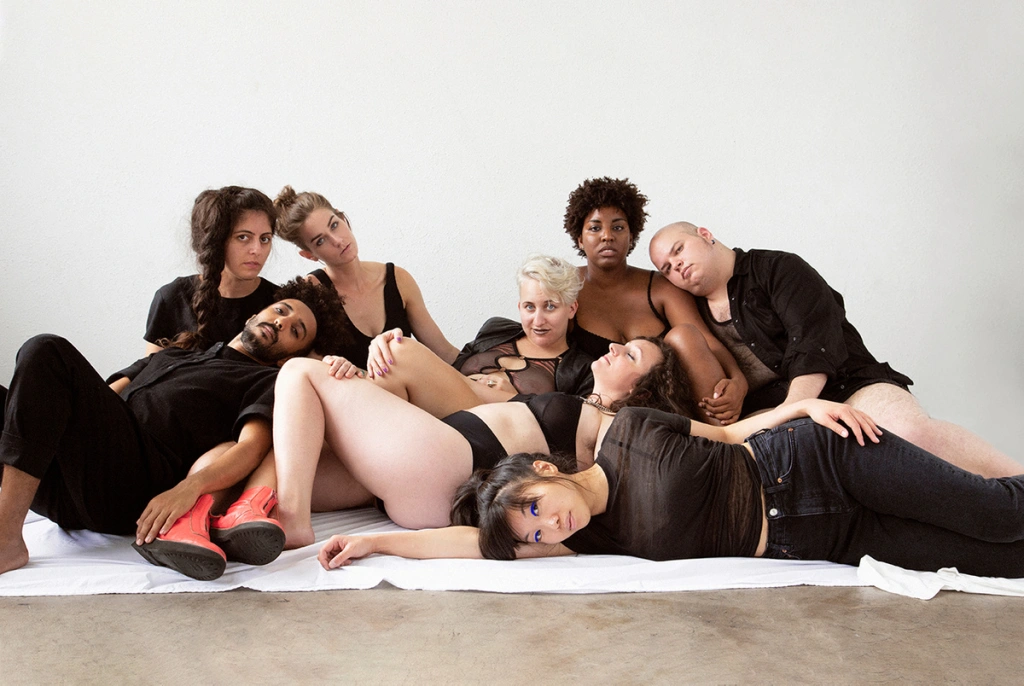
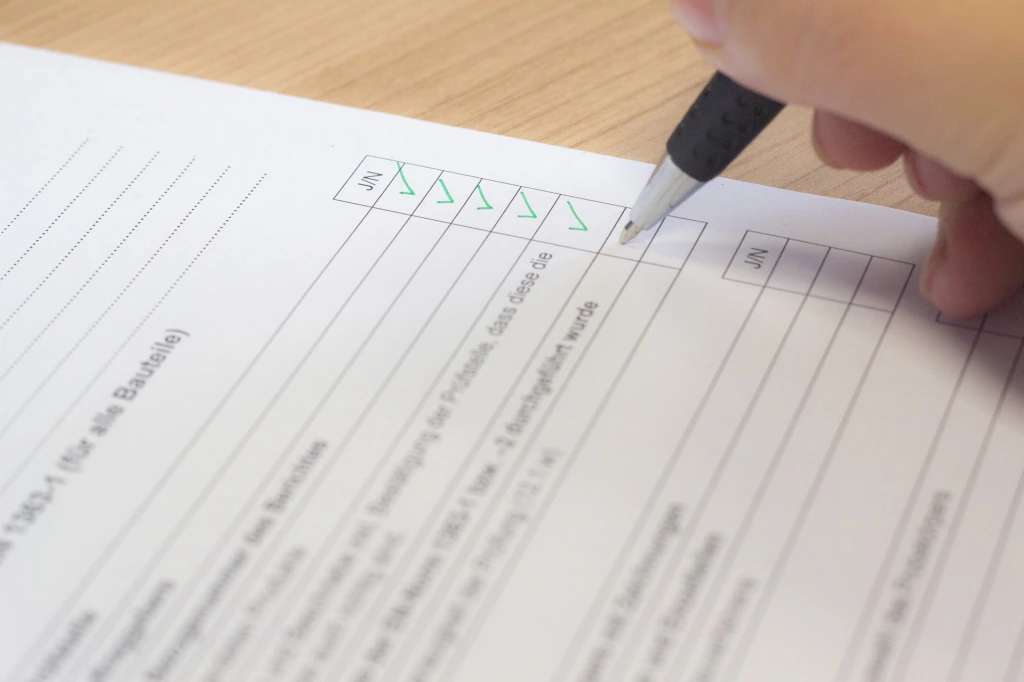
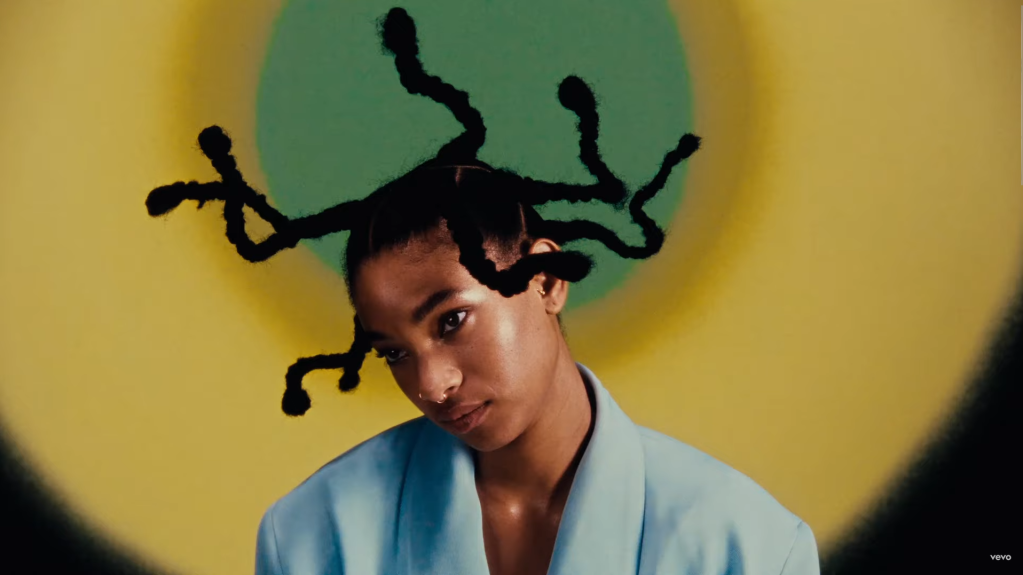
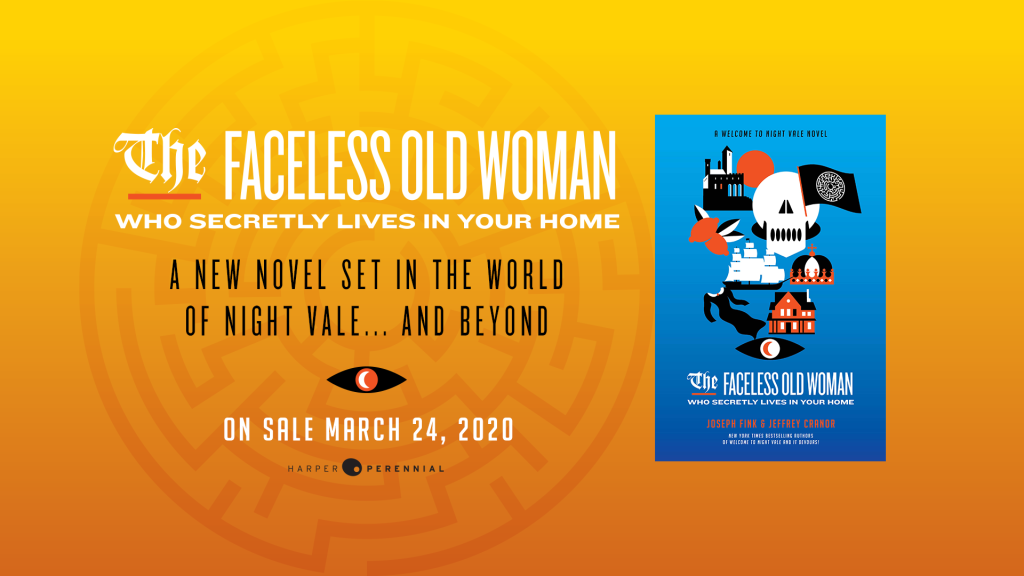
Leave a comment